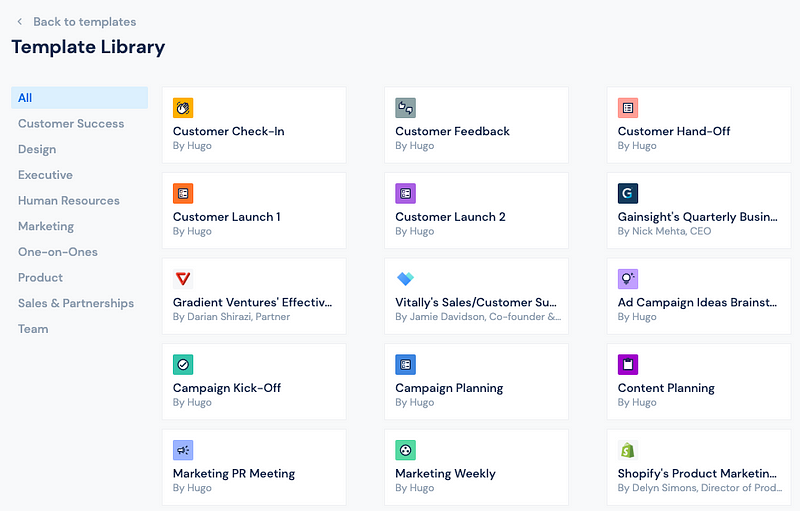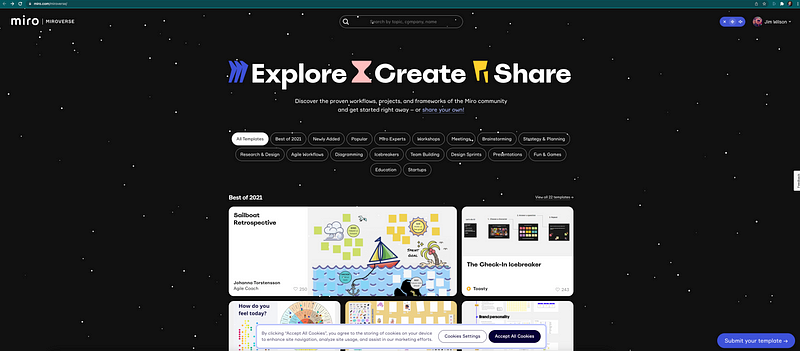Ownership
One “web3” component I find really intriguing is how it can change our concept of ownership on the web. I first started thinking about this after listening to OnDeck’s “The Deep End” podcast with guests the.com’s Clarke & Jeff McKinnon. In the episode, they suggest that a lot of the internet has already been build and we waste a lot of time and rebuilding the same things like home pages, sign-up flows, ect. the.com seeks to better componentize websites, but enable a developer to quickly pull together components that are better than the basic templates a Squarespace or similar will offer.
Creators will be able to contribute “genesis blocks” to the library and will receive acknowledge / reward when they are used by other users.
This got me thinking about several of the SaaS products I use currently, and I think it’s an interesting concept to consider to help build engagement and community around enterprise products.
A couple other examples:
Airtable Bases
Recently, I wanted to work with head of technical program management to build a better tool for predicting when team members would become available to work on new development projects — similar to staffing consulting teams.
We found a framework in an example Airtable Base for Resource Planning that we were able to take and utilize as a basic tool. The person who built that received little credit or acknowledgement for their work, but it added value for Airtable and us.
(Note: Not a huge fan of treating humans like resources, but at the end of the day public companies need to plan ahead and we also had to budget for contractor augmentation — would love to know if there are better tools out there.)
Hugo Templates
Hugo, a service that helps manage meeting notes and action items, offers a template library with some of the templates built by customers. This is a great first step — these creators get a bit of acknowledgement. In “web3”, it may be easier to also reward them for their contributions.
Miro’s Microverse for Templates
Finally, Miro, an online whiteboard tool, offers a “microverse” or library of templates for a wide variety of use cases and enables customers to add to the library.
The foundation is there for many of these companies to engage their super users. In the future, it will likely be common for an Enterprise SaaS company to offer a token for contributions by users — say for contributing a template or genesis block and then for each time it’s utilized by another customer. These rewards can either accrue to the company (earn value towards subscription fees) or better yet an individual user.
This will help provide incentive for users to be engaged with a product, contribute, and support your community of users (help forums activity could provide real value back to super users).
It’s early, but I am excited to watch for early attempts at this by companies. Do you know of any?
Originally published 26 January 2022 on medium.com



